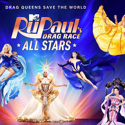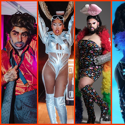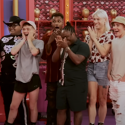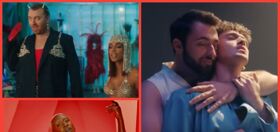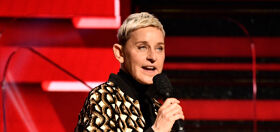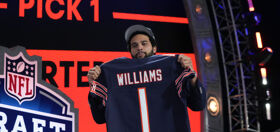
Grace Towers – Photo by justtoby.me
Throughout my time in feminist circles I’ve seen criticism of drag. I’ve seen it compared to blackface and decried as a way to ridicule women and stereotype their behavior as part of the ever-present patriarchy that thrives on the oppression of women and the elevation of men. While the art of drag and the performers that engage in it are hardly perfect, the critique lodged against it is entirely too reactive and limiting. Gender belongs to the individual, not to groups, and to say that men are using drag to appropriate gender is nothing short of ridiculous.
Gender does not exist in a binary; male and female. Men do not own masculinity just as women do not own femininity. Gender, instead, is a spectrum where people, no matter their sex or identity can fall at any point. Some choose to take the entire scale, others choosing to opt out altogether. There is no way for a man to appropriate the female gender because that gender is never the exclusive domain of women in the first place.
To say that men dressing in women’s clothes for performance is inherently harmful completely ignores the very real fact that some of the men that do this are indeed expressing their own femininity and not borrowing someone else’s. Gay men are often stereotyped as feminine. In a sense the joke, “that’s gay,” often means that something is not masculine or falls into a questionable area for a man. But some men, gay or not, are feminine and drag gives men a chance to express this in a meaningful way. When men put on dresses and heels it’s often to express their own gender, not to set foot into women’s territory.
How about we take this to the next level?
Our newsletter is like a refreshing cocktail (or mocktail) of LGBTQ+ entertainment and pop culture, served up with a side of eye-candy.
Not to mention that there are plenty of women that are not feminine. If stilettos and gowns are the sole territory of women and a man putting them on is appropriation, then that leaves women in the same confining gender box that many don’t want to be in. Most people find themselves more androgynous rather than hyper masculine or hyper feminine. This means that someone with one gender identity can act in a variety of different ways while not having to redefine themselves as a man or a woman, based on whatever action they performed.
Personally, I loathe high heels and I’ve never worn as much makeup as a drag queen in my entire life. The idea of putting that much effort and thought into my appearance makes me cringe. I don’t express my gender through the stereotypical trappings of femininity. I feel very comfortable as a woman in jeans and sneakers. There is no correct way for me to express myself because there is no gender binary that I need to adhere to.
Telling people that identify as men, whether they were assigned male or not, that expressing a natural part of their own gender is insulting to everyone on the planet only perpetuates the idea that men have to be masculine and women have to be feminine. You know who came up with that idea in the first place? The patriarchy.
The subversive side of drag is far from what most critics seem to think it is. Drag can take gender back from the patriarchy that has been dictating it. It can twist gender into an entirely new form and present that to an audience. There is a Cards Against Humanity white card that reads, “A gender identity that can only be conveyed through slam poetry”. And that’s exactly what gender should be. An art form, an individual expression, an empowering way to define yourself. When men put on heels and dance to Rihanna songs they’re not just performing, they’re taking gender norms and turning them on their heads.
As for drag acts themselves, sometimes they do poke fun at women. But for all of the drag shows that I have been to, for all of the culture that I have been exposed to, I have never once seen a drag queen acting misogynistic, only tongue in cheek. Far from hating women, drag queens celebrate them. I have seen drag queens recognize women at shows and talk about the impact particular women have had on them. Where is this underlying hatred and ridicule that is supposed to be there? I write on feminism every day on my personal blog and have no problem identifying problematic behaviors where they occur. Drag queens are not the people that we need to be worrying about.
In the drag community, the performers form relationships and give each other titles of “mother” or “sister.” This is not meant to mock women or insult them by taking on traditionally feminine roles. Calling someone your drag mother is a sign of deep respect. That person is an individual that introduced you to the drag world and nurtured you as a performer. There is no disdain when a man calls another man his sister. There is only a mutual affection that they share with someone that understands their experiences and hold their art form in common.
Drag is many, many, many things. It can be subversive, it can be funny, it can be glamorous, it can be heartfelt. But at its core, it is not misogynistic or exploitive. Drag is a fun way for people to express themselves and challenge an audience to leave behind their preconceived ideas about gender norms and heteronormativity. For all of the reading and research I do into gender and feminism, one of the most crystallizing experiences I’ve ever had in terms of what gender expression can be was watching a drag queen perform with a drag king. Gender belongs to the people. All people. Let them have it.


